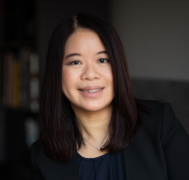We are all living on borrowed time
As I am slowly recovering from a whirlwind week in London, my mind was reliving a recent dinner conversation with my dear friend Dharmesh Mistry, where we talked about hopes, dreams, and purpose.

Together, we can create meaningful change through collective action that can last generations
With the limited resources that we have and the limited time that we are given, what we choose to do with it and who we choose to spend it with matters.
We are all living on borrowed time. But for some, they don’t have the luxury to wait – their time is up. Think about the island nations whose homes will soon be overwhelmed by the impact of climate change.
But it’s not just the physical assets at risks. Think about the cultures whose futures will be undone and the memories that will cease to exist in the physical world, unless we are all willing to take up our shared responsibility and do something about it.
As we look towards the future, the threat looms large for those who don’t have a voice at the table. There are over 7,168 living languages being spoken in the world today. Yet, how many of those are included in the large language models that are being built? With limited high-quality data that can be used for training, what would become of the rich tapestry of our culture?
While the problem is not new in the internet world, it will only become exacerbated as the world of living and working becomes more automated and reliant on algorithms, many of which are trained in western languages. The large gap in available data will undoubtedly impact the accuracy of lower resource languages and may even amplify the biases found in their training data, since the text is typically crawled from the open internet.
Not to mention, there are nuances associated with many local languages as well that machines will need to understand. For example, it is customary for native Hongkongers to mix Chinese and English words in the same sentence. As for the Japanese language, three different types of scripts are used, each with its own specific role; and while horizontal text is read left to right, vertical text (like those in novel or manga books) goes from top to bottom with the order of the columns going from right to left.
Ever heard of the saying, lost in translation?
If AI is our new future, what is our role in making sure the diversity of our civilisation is not lost? Will we be willing to stand up for those who don’t have a voice at the table? What part will we play in this new narrative? Or will we simply let it be overwhelmed and washed away, just like the physical islands and coastal nations?
As Paolo Sironi said in his keynote at the recent Fintech Week London conference, “AI won’t replace our work. People working with AI will advance compared to people who don’t.” How then can we put the tool in the hands of those who don’t have access to it? Who are we designing the solutions for and who are we leaving behind?
Does the future of AI lie in fear or hope? Are we shaped by the world we live in, or will we shape it?
And we are all living on borrowed time indeed. For some, their time has run out. As I shared the stage with Ashlea Atigolo and Roxana Nasoi at Fintech Week London, I was reminded of our dear friends JD (Dr. Ir Johannes Drooghaag) and Alaric Aloor, whose lives were tragically cut short last year. Yet, their passion and energy remained with us – along with their work to advocate for those who don’t have a voice. It was through them that I met Roxana and a global group of passionate technologists and AI ethics advocates – who carry the torch for those who came before us. As Alaric said, “The only way success occurs is when we help others.”
The success of innovations we experience today rests on the shoulders of technology advances and failures from decades before us. While each of us might only have limited time, together, we can create meaningful change through collective action that can last generations.
Hype. Fear. Hope. Which path will we choose? We have one life to live. Find what you love and what drives you. Make it count.
 About the author
About the author
Theodora Lau is the founder of Unconventional Ventures, a public speaker, and an advisor. She is the co-author of The Metaverse Economy (2023) and Beyond Good (2021), and host of One Vision, a podcast on fintech and innovation.
She was named one of American Banker’s Most Influential Women in FinTech in 2023. She is also a regular contributor and commentator for top industry events and publications, including BBC News, FinTech Futures, and Finovate.









































